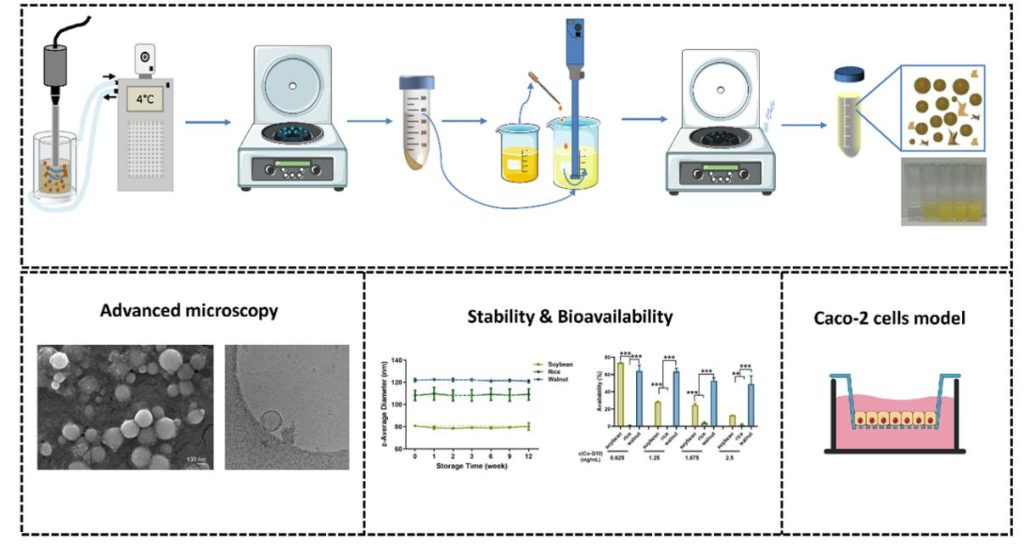Hydrophobic compounds for functional formulations are becoming more popular due to their health benefits. These molecules were therapeutically restricted by their low solubility, permeability, stability, and oral bioavailability. Plant-derived extracellular nanoparticles are gaining more and more attention as promising carriers of hydrophobic bioactive molecules to human cells. These nanoparticles, sonicated from the waste of pepsin enzymatic hydrolysates, were remarkably biocompatible, biodegradable, and highly abundant. There are 3 main overarching objectives:
Using advanced microscopy techniques to investigate the structural differences of original plant-based nanoparticles as well as the hydrophobic compounds’ nano complexation.
Using accelerated preservation techniques as well as in vitro gastrointestinal digestion methods to evaluate stability and the bioavailability of the nanocomplexes, respectively.
Using in vitro Caco-2 cell model to evaluate the permeability of nanocomplexes, and to further study the absorption and transport mechanism of nanocomplexes.

Address: 241 Daxue Road, Jinping District, Shantou, Guangdong Province, China
©Guangdong Technion-Israel Institute of Technology 2018
粤ICP备17036470号,版权所有©广东以色列理工学院